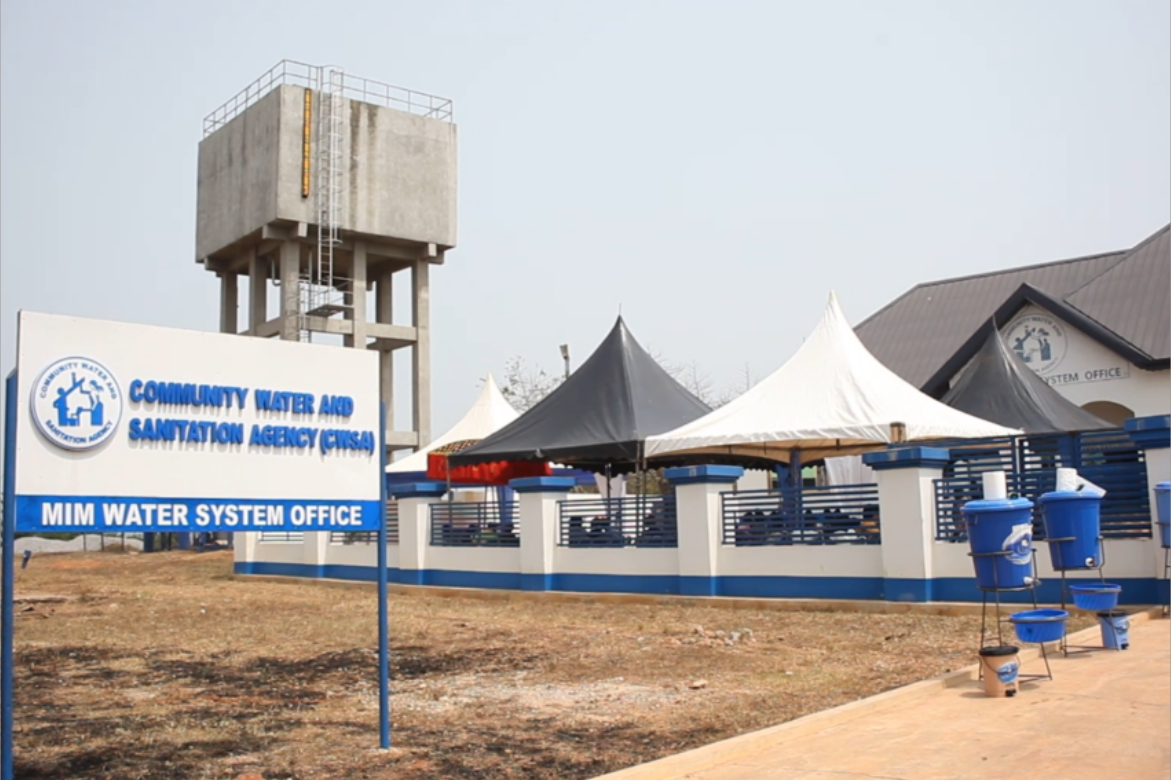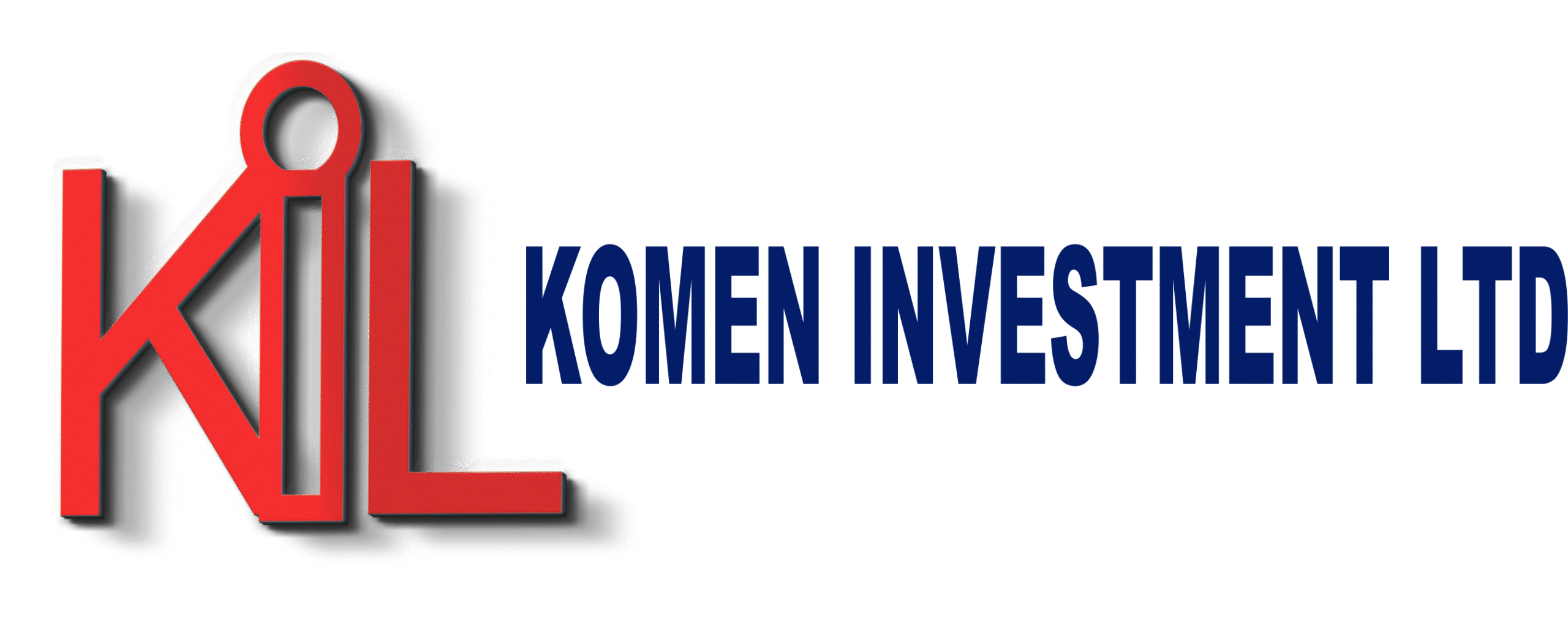Water Supply and Sanitation Project in Brong Ahafo

The Brong Ahafo Water Supply and Sanitation Project
One of the most basic human needs—access to clean water and better sanitation—is being addressed by a remarkable shift taking place in the centre of Ghana’s Brong Ahafo region. A collaborative project with Komen Investments Limited’s active participation, the Water Supply and Sanitation Project in Brong Ahafo is a shining example of sustainable development and community resilience. This all-encompassing intervention was created to address the historical issues in the area with public health, sanitation infrastructure, and water accessibility, especially in underprivileged rural and peri-urban populations.
Project Background and the Need for Intervention
Brong Ahafo, despite its rich agricultural potential and vibrant communities, has long struggled with inconsistent access to potable water. Many residents relied on unsafe sources such as rivers and unprotected wells, which contributed to waterborne diseases and hampered overall development. Sanitation facilities were either inadequate or entirely lacking in some areas, leading to widespread open defecation and associated health risks. Recognizing the urgent need for a structured, inclusive, and lasting solution, this project was conceptualized to bring hope and transformation to thousands of residents.
Komen Investments Limited’s Role and Commitment
Komen Investments Limited, known for its dedication to community-centered infrastructure development, played a critical role in the successful implementation of this project. As a trusted partner in engineering, procurement, and construction services across Ghana, our involvement was rooted in technical expertise, local engagement, and a long-term vision for regional development. Our team worked closely with governmental agencies, community leaders, and international development partners to ensure that the project met both international standards and local needs.
Scope and Objectives of the Project
The overarching goal of the Water Supply and Sanitation Project in Brong Ahafo was to improve access to safe drinking water and enhance sanitation facilities across multiple districts. The project aimed to reduce waterborne illnesses, increase school attendance—especially among girls—and foster healthier living conditions. Specific objectives included the construction of water treatment plants, boreholes, household and communal latrines, and the promotion of hygiene education programs to support behavioral change.
Water Supply Infrastructure and Development
One of the cornerstones of the project was the development and rehabilitation of water supply systems. Komen Investments Limited led the construction of mechanized boreholes, small-town water systems, and the installation of pipelines and reservoirs. These systems were powered by energy-efficient and solar-powered pumps to ensure sustainability and reduce operational costs. By integrating modern technology with practical design, these water systems now serve thousands of people year-round.
Sustainable Sanitation Solutions
Equally important was the improvement of sanitation infrastructure. The project saw the construction of ventilated improved pit (VIP) latrines in schools, markets, and public spaces. Households were also encouraged and supported to build their own toilets through micro-financing and community savings groups. Our approach emphasized sustainability and user-friendly designs that cater to the needs of women, children, and people with disabilities, ensuring that no one was left behind.
Community Involvement and Stakeholder Engagement
One of the unique aspects of this project was its strong emphasis on community engagement. From inception through completion, Komen Investments Limited prioritized listening to local voices, understanding cultural contexts, and incorporating traditional knowledge. Community Water and Sanitation Committees (WATSANs) were established and trained to manage the new facilities, creating a sense of ownership and long-term responsibility among residents.
Public Health and Hygiene Education
Recognizing that infrastructure alone is not enough, the project incorporated a robust hygiene promotion component. Through interactive workshops, school clubs, radio broadcasts, and door-to-door campaigns, residents were educated on the importance of handwashing, safe water storage, menstrual hygiene management, and disease prevention. These campaigns have led to a significant improvement in hygiene practices across the region.
School-Based WASH Programs
Educational institutions were a key focus of the sanitation effort. Komen Investments Limited, in collaboration with educational authorities, oversaw the installation of gender-sensitive sanitation facilities in schools. These included separate latrines for boys and girls, menstrual hygiene rooms, and handwashing stations. Teachers and pupils received WASH (Water, Sanitation, and Hygiene) training to create a supportive learning environment and reduce absenteeism due to illness or menstruation.
Innovative Technology Integration
Technology played an integral role in enhancing the effectiveness and efficiency of the project. GIS mapping was used to identify and monitor water points, while mobile platforms facilitated real-time data collection and reporting. Our team introduced remote monitoring systems to detect faults early and ensure prompt maintenance. These innovations increased accountability and extended the lifespan of infrastructure investments.
Capacity Building and Local Employment
The project also contributed to local economic growth by creating jobs and building capacity. Komen Investments Limited hired local labor for construction and maintenance, providing hands-on training in plumbing, masonry, and mechanical work. Local artisans were empowered to produce latrine slabs and other components, boosting income and transferring valuable skills that will benefit communities for years to come.
Gender Inclusion and Empowerment
A strong gender lens was applied throughout the project. Women were actively involved in decision-making, training programs, and WATSAN committees. This approach not only ensured that women’s specific needs were addressed but also empowered them as leaders and change agents within their communities. The result is a more inclusive and equitable approach to water and sanitation service delivery.
Environmental Sustainability Measures
Environmental sustainability was carefully integrated into every phase of the project. Sites were chosen to minimize ecological disruption, and water sources were tested for long-term viability. Solar energy was used to power pumps, and environmental education was provided to communities on preserving water bodies and avoiding contamination. The project leaves behind a model that balances development with ecological preservation.
Monitoring, Evaluation, and Accountability
A rigorous monitoring and evaluation framework was put in place to ensure transparency and continuous improvement. Komen Investments Limited worked with local authorities to track progress against key performance indicators such as water access rates, reduction in open defecation, and health outcomes. Feedback mechanisms allowed community members to report issues, suggest improvements, and stay informed about project developments.
Challenges Faced and Overcome
Like any large-scale development initiative, the project encountered several challenges, including logistical issues during the rainy season, resistance to behavioral change, and technical complications in rocky terrains. However, through adaptive management, open communication, and strong partnerships, these challenges were effectively addressed. The collaborative spirit between Komen Investments Limited and all stakeholders was instrumental in navigating obstacles.
Success Stories from the Field
Countless stories of transformation emerged as the project progressed. In one village, a mother of five reported a dramatic decline in cases of diarrhea and skin infections among her children. In another, schoolgirls expressed newfound confidence attending school during their menstrual cycle thanks to hygienic and private facilities. These testimonials are a powerful reminder of the human impact behind the infrastructure.
Economic and Social Impacts
Beyond improved health, the project has catalyzed social and economic benefits. Reduced time spent fetching water—especially for women—has freed up time for income-generating activities and education. Improved sanitation has enhanced dignity and social cohesion. Community members now take pride in their surroundings, and villages are becoming more attractive places to live and work.
Replication and Scaling Opportunities
The success of the Brong Ahafo project has inspired interest in replicating the model in other regions of Ghana. Lessons learned and best practices are being documented and shared with development partners and government entities. Komen Investments Limited is poised to bring its expertise and community-based approach to new projects across the country.
Partnerships and Institutional Support
The success of this project was made possible through strong partnerships. Governmental bodies provided regulatory guidance and support, while donor agencies and NGOs contributed funding and technical assistance. Komen Investments Limited served as a critical bridge, translating strategic vision into tangible outcomes on the ground. The collaboration has strengthened institutional frameworks for future water and sanitation initiatives.
Alignment with National and Global Goals
This project directly contributes to Ghana’s national development strategies and aligns with the United Nations Sustainable Development Goal 6—Clean Water and Sanitation for All. By expanding access to water and sanitation, promoting hygiene, and fostering resilience, the project supports broader efforts to reduce poverty, enhance education, and promote gender equality.
Post-Implementation Support and Maintenance
Sustainability beyond project completion has been a key priority. Komen Investments Limited helped establish maintenance protocols, spare parts supply chains, and financing mechanisms for repairs. Local technicians were trained to troubleshoot and maintain systems, while ongoing support is available through district-level WASH offices and NGOs. This ensures that infrastructure continues to serve communities effectively for the long term.
Lessons Learned and Future Outlook
Several critical lessons have emerged, including the importance of early community engagement, gender-sensitive designs, and the integration of hygiene education. Flexibility, cultural sensitivity, and innovation have proven vital to success. As we look to the future, Komen Investments Limited remains committed to applying these insights to future projects and continuing its role as a catalyst for sustainable development.
A Lasting Legacy of Change
The Water Supply and Sanitation Project in Brong Ahafo is more than a set of infrastructure interventions—it is a legacy of hope, dignity, and progress. Through collaboration, innovation, and determination, lives have been changed and communities uplifted. For Komen Investments Limited, this project stands as a proud testament to our mission of building infrastructure that transforms lives and empowers the people of Ghana.


